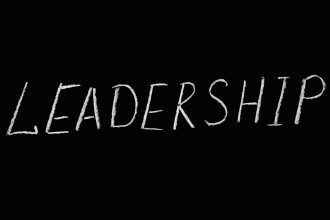Philosophy of History: 5 Key Insights Shaping Our Future
History is often seen as a collection of facts, dates, and names. Yet, beneath this surface lies a deeper, more profound layer: how we interpret, understand, and even use these historical accounts. This is where the philosophy of history comes into play, acting as the invisible hand guiding our perception of the past and, consequently, our vision for the future. It’s not just about what happened, but what it *means* and *why* it matters.
Understanding this critical field can unlock new perspectives on societal evolution, human nature, and the very direction of civilization. Far from being an abstract academic pursuit, your implicit or explicit philosophy of history profoundly influences your worldview and decisions. Let’s delve into its core.
What is the Philosophy of History?
At its heart, the philosophy of history is the study of the theoretical foundations of history as a discipline and as a process. It asks fundamental questions about the nature of historical events, the possibility of historical knowledge, and whether history itself has a meaning, direction, or purpose.
Defining the Core Concept
This field critically examines the methods of historians, the objectivity of historical accounts, and the very language used to describe the past. It grapples with how narratives are constructed, biases are formed, and how different cultures interpret their own origins and destiny. Essentially, it’s a meta-analysis of history.
Two Branches: Speculative vs. Critical Approaches
Historically, the philosophy of history has branched into two main areas:
- Speculative Philosophy of History: This branch attempts to find overarching patterns, meanings, or purposes in the entire course of human history. Thinkers like Hegel or Marx sought to identify grand narratives or ultimate ends towards which history is moving. It often explores whether history has a ‘telos’ or a predetermined goal.
- Critical Philosophy of History: This approach focuses on the methods, concepts, and epistemology of historical inquiry. It scrutinizes how historians write history, what constitutes historical evidence, the nature of historical explanation, and the objectivity of historical knowledge. It’s less about the ‘meaning’ of history itself and more about the ‘meaning’ of historical practice.
The Profound Impact of a Philosophy of History
Whether consciously acknowledged or not, our individual and collective philosophy of history shapes our understanding of the world and influences our actions. It is the lens through which we view progress, conflict, and societal change.
Guiding Historical Interpretation
The way we interpret the past is not neutral. A cyclical view might emphasize the inevitability of rise and fall, while a linear progressive view might highlight human advancement. These underlying beliefs dictate which events we deem significant, how we connect them, and the lessons we draw. For instance, a narrative focused on class struggle will interpret revolutions differently than one centered on individual liberty.
Influencing Societal Trajectories
Beyond individual interpretation, a shared philosophy of history can drive collective action. Societies that believe in an inherent historical destiny might pursue expansionist policies. Those who see history as a series of moral lessons might prioritize justice and reconciliation. Governments and social movements frequently invoke historical narratives to justify present policies or inspire future change, demonstrating the power of a collective historical consciousness.
Major Currents in Historical Thought
Throughout history, various thinkers have proposed different frameworks for understanding the grand sweep of human events. These different perspectives offer valuable insights into the ongoing debate about history’s nature.
Cycles, Progress, and Purpose
Some of the most enduring debates revolve around whether history is cyclical, linear, or purposeful:
- Cyclical Views: Ancient Greek and Roman historians, as well as thinkers like Giambattista Vico, saw history as repeating patterns of rise, decline, and rebirth, much like the seasons.
- Linear Progressive Views: The Enlightenment brought forth ideas of continuous human progress, often tied to reason and scientific advancement. Thinkers like Condorcet championed the idea of humanity constantly moving towards a better future.
- Teleological (Purpose-Driven) Views: Many religious philosophies and later secular theories (e.g., G.W.F. Hegel’s dialectic, Karl Marx’s historical materialism) proposed that history moves towards a specific end or ultimate goal, often involving the realization of an ideal state or perfect society.
Key Thinkers and Their Legacies
From St. Augustine’s providential history to Oswald Spengler’s theories of civilizational decline, countless philosophers have contributed to this rich field. Understanding their perspectives enriches our own historical perspective. For a deeper dive into these influential ideas, consider exploring resources like the Stanford Encyclopedia of Philosophy’s entry on the Philosophy of History.
Cultivating Your Own Historical Perspective
Developing a conscious philosophy of history is not just for academics; it’s a vital tool for critical thinking and informed citizenship. It helps you navigate complex historical narratives and make sense of current events.
Essential Questions for Reflection
To begin forming your own framework, consider these questions:
- Does history have an inherent meaning or purpose, or is it merely a sequence of events?
- Can we truly learn objective lessons from the past, or are all interpretations subjective?
- What role do individuals play versus broader social forces in shaping historical outcomes?
- Is humanity generally progressing, regressing, or simply changing without a clear direction?
- How do my own cultural background and values influence my view of history?
Practical Benefits in Modern Life
A well-considered historical perspective can:
- Enhance your critical thinking skills when evaluating news and political rhetoric.
- Provide context for contemporary social, economic, and political issues.
- Foster empathy by understanding different historical experiences and motivations.
- Inform your decisions by recognizing patterns and potential consequences.
- Help you articulate a more coherent personal and civic worldview.
For more insights into the broader concepts of historical study, a visit to Wikipedia’s article on Historiography can provide valuable context.
Conclusion: Shaping Tomorrow by Understanding Yesterday
The philosophy of history is far more than a niche academic interest; it’s a foundational discipline that shapes our collective memory, our understanding of human progress, and our aspirations for the future. By consciously engaging with how history is interpreted and what it means, we gain a powerful tool for navigating the complexities of the modern world.
Reflect on your own philosophy of history today and discover how it empowers your understanding of the world, helping you to not only comprehend the past but also actively shape a more informed and intentional future.
Featured image provided by Pexels — photo by RDNE Stock project










